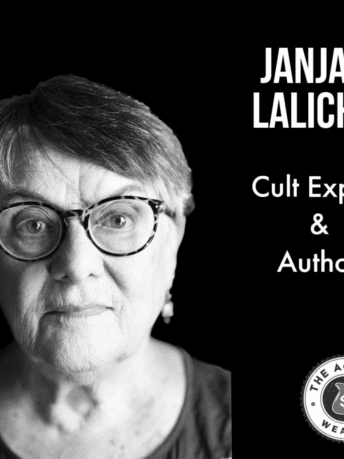originally from http://www.livescience.com/health/080409-cults-sects.html
by Jeanna Bryner
The allegedly polygamous group whose compound was raided this week in Texas is either a religious sect or a full-blown cult, depending on whom you ask.
The raided compound was founded by jailed polygamist leader Warren Jeffs, who took over in 2002 as prophet of the Fundamentalist Church of Jesus Christ of Latter Day Saints (FLDS), which broke off from the Mormon church in the 1930s over the issue of polygamy.
Authorities have reportedly taken into legal custody more than 400 children and 133 women, deemed to have been harmed or in imminent danger of harm.
While the media and some sociologists call the group a religious sect, other experts see it as a clear-cut cult, defined by charismatic leadership and abuse. According to news accounts of the FLDS, pubescent girls were forced into “spiritual marriages” to older men. Inside the compound’s walls, researchers say, a new reality was born, with members indoctrinated so fully they had no concept of reality outside the walls.
“In the case of the FLDS, we’re talking about basically believing that women are there to be baby factories, and you have extreme patriarchal control of that group,” said Janja Lalich, a sociologist at California State University, Chico.
Lalich told LiveScience she definitely thinks the Texas compound should be called a cult. “If you’ve got a group that’s abusing hundreds and hundreds of women and children, let’s call it what it is,” she said.
Another scientist weighed in on the cult-or-not question. “From what I can understand of this movement in Texas and other places, is that it would probably fall under new religious movement or cult movement,” said John Barnshaw of the University of Delaware, who studies collective behaviors such as social movements and cultish behaviors.
Why people join
Some people have no choice about whether to join a religious group or other ideological group. Many FLDS members were apparently born into the society and have no concept of mainstream beliefs.
“These people grew up in this world. They don’t have a clue what regular society is about,” said Lalich, who has written several books on cults. “They come to believe this kind of behavior is normal even though clearly people leave because they realize this isn’t healthy. You don’t give up girls at age 14 to marry some 50-year-old relative in many cases. The women have absolutely no choice. They have absolutely no power in that group.”
Some adults do sign up with cults voluntarily, but those with stronger social ties to mainstream society are less likely to do so, explained Boston University sociologist Nancy Ammerman.
“What we do know is that the more radical kinds of groups are unlikely to attract people who are well-positioned and well-integrated into the larger society,” Ammerman said. “People who are middle-aged business owners living in suburbia with a mortgage are less likely to be attracted to joining such a group than for instance a 22-year-old fresh out of college, without a job, perhaps estranged from their family.”
Cults vs. sects
The term “cult,” is derived from the word culture and has not always carried today’s negative connotation, said Phillips Stevens, Jr., an anthropologist who studies religions and cults at the State University of New York at Buffalo.
“The word cult, up until the 1970s, was a respectable term referring to the central focus of a religious faith,” Stevens said. “You could speak of the Catholic cult, and in fact, people still do.”
Beginning in the 1970s, around the time of the UFO-spawned Raëlians and Charles Manson’s “Family,” cults were associated with “a repressive, exclusive group of people whose members are held emotionally, if not physically, against their wills, led by usually a megalomaniacal leader,” Stevens said.
The media, scientists and outsiders following the recent news from Eldorado, Texas, spout various labels to describe Warren Jeffs’ establishment.
“Most social scientists would probably describe [FLDS] as a fundamentalist religious movement or a new religious movement because of the degree of difference between it and any previous existing religious tradition,” Ammerman said in a telephone interview.
“Social scientists have increasingly not used the term [cult] at all, because it does carry that pejorative value with it,” Ammerman said. Instead, the emergence of “new religious movements” serves as an umbrella term for cult-like groups. That way, Ammerman and other sociologists can focus more on the dynamics in a group and beyond, such as the demands placed on members and how the rest of society responds to the group.
Meanwhile, many news organizations are referring to the FLDS group as a sect, meaning a break-off from a traditional religion (in this case, the Church of Jesus Christ of Latter-day Saints).
In contrast, Lalich said she uses the word cult, “and I think it’s important that we use the term. I think by not using the word cult to identify these groups we let them hide behind the veil of religion.”
Lethal leaders
Charisma is in some ways what gives cult leaders such power.
“The charismatic leader doesn’t necessarily need to verify things; it’s often based on trust,” said Barnshaw, the University of Delaware researcher. “That person is often the lawgiver. They decide on what is right and what is wrong.”
With that power, cult leaders have persuaded or otherwise convinced members to take extreme measures to reach some sort of salvation. Some cults do things that make them more clearly deserving of the label of cult. For the Heaven’s Gate cult, Marshall Applewhite sold his message to 38 members who in March 1997 took their own lives with the promise that suicide would allow them to shed their bodily “containers.” They were to hitch a ride on a spacecraft hidden behind the comet Hale-Bopp to reach a higher existence.
The leader of the Branch Davidians changed his name from Vernon Howell to David (after King David of the Israelites) Koresh (from the Babylonian King Cyrus). Rumors and later reports from ex-cult members suggested Koresh married several members, some in their mid-teens, and sexually and physically abused members. Rather than the apocalypse Koresh spoke of, a 1993 FBI raid on their Waco, Texas compound left 76 dead, more or less resulting in the disappearnce of the group.
In Lalich’s view, the distinction between a legitimate sect and a cult is simple: It depends on what or whom you worship.
“In a healthy or legitimate religion or sect, you are presumably worshiping some higher principle or some higher authority,” Lalich said, “whereas in a cult people tend to end up worshipping that living human leader.”
She added, “Your salvation is tied up with that particular living leader, and obeying orders and not breaking the rules, and subjecting yourself to whatever personal transformation you’re expected to go through to be on that correct path to salvation.”
Why members stay
Once they become members of a cult, individuals become more and more isolated from society and from reality-checks found in a diverse world.
“You take on new reality, this new interpretation of the world,” Lalich said. “It doesn’t mean you have to live in a compound in the middle of Texas. But you’ve closed your world view. Everything you’re interpreting, you’re interpreting through the cultic belief system.”
One former member of the Eldorado group echoed this.
“Once you go into the compound, you don’t ever leave it,” Carolyn Jessop, an ex-FLDS member, told the Associated Press. Jessop was one of the wives of the alleged leader of the Eldorado complex, before leaving in 2004.
One reason for the seeming lifelong loyalty, Lalich suspects, is fear.
“A lot of these groups operate on fear. You’re afraid of whatever punishment you might get from the group,” Lalich said. “But more so, you’re afraid that you’re going to be missing out on that path to salvation, whatever that salvation might be.”
Often, Barnshaw said, cult members are made to believe the outside world is evil. The leaders will set up a dynamic of “insider versus outsider,” and “interworldly versus otherworldly.” This internal world “is the path to righteousness, as opposed to the external world, which is wicked and harmful and detrimental to our society,” Barnshaw said.
Regarding the FLDS group in Texas, this type of lens apparently was a powerful force. “There was a strong distrust of anyone who this group perceived as being an outsider,” Barnshaw said.






